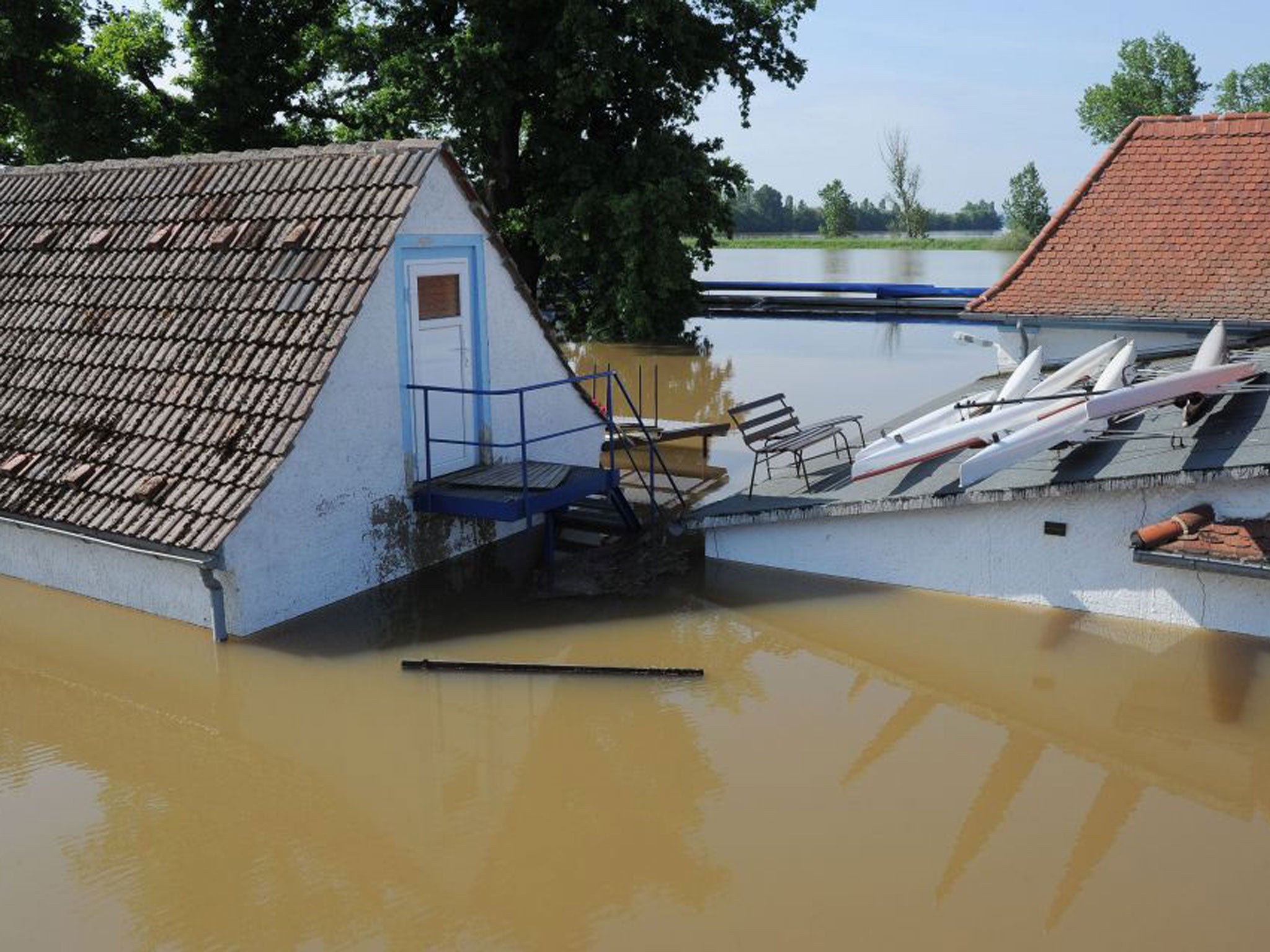
Your support helps us to tell the story
From reproductive rights to climate change to Big Tech, The Independent is on the ground when the story is developing. Whether it's investigating the financials of Elon Musk's pro-Trump PAC or producing our latest documentary, 'The A Word', which shines a light on the American women fighting for reproductive rights, we know how important it is to parse out the facts from the messaging.
At such a critical moment in US history, we need reporters on the ground. Your donation allows us to keep sending journalists to speak to both sides of the story.
The Independent is trusted by Americans across the entire political spectrum. And unlike many other quality news outlets, we choose not to lock Americans out of our reporting and analysis with paywalls. We believe quality journalism should be available to everyone, paid for by those who can afford it.
Your support makes all the difference.The crest of the flood-swollen Danube surged towards the Hungarian capital, Budapest, today, while communities along the Elbe in Germany braced themselves for high water as the river churned towards the North Sea.
Budapest Mayor Istvan Tarlos said that in a worst-case scenario up to 55,000 people may need to be evacuated. But he was confident only the lowest-lying areas would be exposed to the Danube’s expanded flow.
The idyllic 800-year-old Elbe river port of Mühlberg was a ghost town today, with all streets empty, and buildings barricaded with sandbags as two-thirds of the population fled a tide of brown floodwater which threatened to destroy shops and homes.
Mühlberg, on a wide bend of the Elbe, was on red alert as floodwaters held up by waterlogged 100-year-old dykes threatened to swamp the town. Six hundred soldiers, firemen and volunteer rescue workers were battling to shore up the dykes with sandbags.
On the other side of the seeping dykes, the muddy waters of the Elbe, a river which is normally around 300yd wide, stretched well over two miles away into the distance, drowning hundreds of trees and bushes.
In the centre of Mühlberg, the silence that prevailed in the town’s cobbled streets was broken only occasionally by a police van with loudhailers. Officers inside warned people to leave the town immediately, cautioning that those who chose to stay did so at their own risk.
By midday yesterday 1,500 of the town’s mainly elderly 2,000 inhabitants had been evacuated to the homes of friends and relatives or given emergency accommodation at rescue centres on higher ground. “It is the old people we are most worried about,” police spokeswoman Ines Filhorn told The Independent, “For many, the experience is too traumatic to bear.”
Across central Europe, at least 19 people have died over the past week, and experts say the economic damage in Germany alone could top €11bn (£9.3bn).
Join our commenting forum
Join thought-provoking conversations, follow other Independent readers and see their replies
Comments